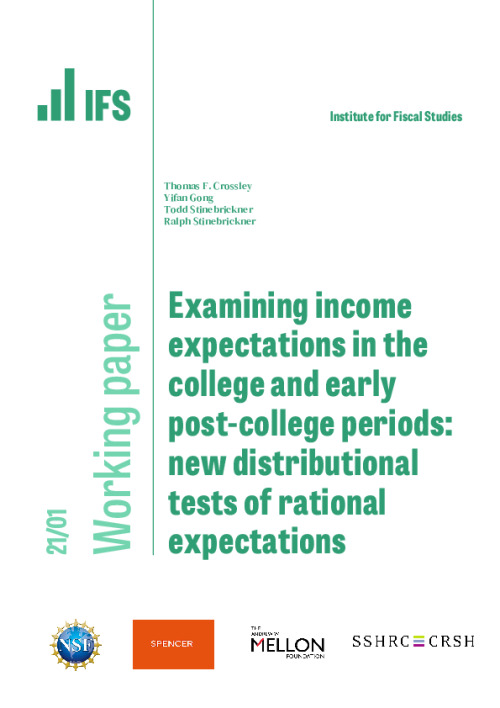Unique longitudinal probabilistic expectations data from the Berea Panel Study, which cover both college and early post-college periods, are used to examine young adults’ beliefs about their future incomes. We introduce a new measure of the ex post accuracy of beliefs, and two new approaches to testing whether, ex ante, agents exhibit Rational Expectations. We show that taking into account the additional information about higher moments of individual belief distributions contained in probabilistic ex-pectations data is important for detecting types of violations of Rational Expectations that are not detectable by existing mean-based tests. Beliefs about future income are found to become more accurate as students progress through school and then enter the post-college period. Tests of Rational Expectations almost always reject for the in-school period, but the evidence against Rational Expectations is much weaker in the post-college period.
Authors

Research Fellow University of Michigan
Tom is a Research Fellow at IFS, a Research Professor for the Institute for Social Research at the University of Michigan.

Yifan Gong

Todd Stinebrickner

Ralph Stinebrickner
Working Paper details
- DOI
- 10.1920/wp.ifs.2021.0121
- Publisher
- The IFS
Suggested citation
Crossley, T et al. (2021). Examining income expectations in the college and early post-college periods: new distributional tests of rational expectations. London: The IFS. Available at: https://ifs.org.uk/publications/examining-income-expectations-college-and-early-post-college-periods-new (accessed: 4 May 2024).
More from IFS
Understand this issue

Behind the numbers: reassessing investment in skills and training
12 October 2023

Sure Start achieved its aims, then we threw it away
15 April 2024

Scottish Budget 2024-25: IFS analysis
Policy analysis

Sure Start greatly improved disadvantaged children’s GCSE results
9 April 2024

The short- and medium-term impacts of Sure Start on educational outcomes
9 April 2024

What you need to know about the new childcare entitlements
28 March 2024
Academic research

Labour market inequality and the changing life cycle profile of male and female wages
15 April 2024

Higher Education Access and Funding: challenges and policy options

Interpreting cohort profiles of lifecycle earnings volatility
15 April 2024
